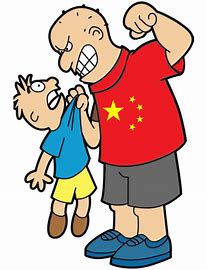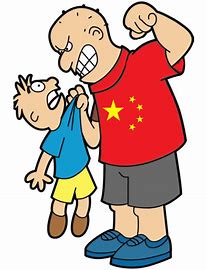
In a bold move, China issued a stern warning to nations aligning with the United States in trade policies that Beijing perceived as detrimental to its interests. This development comes amidst escalating tensions between the world’s two largest economies, as the US continues negotiating trade agreements to promote fair trade with China.
The Chinese Ministry of Commerce recently declared its firm opposition to any agreements undermining China’s position, emphasizing that such actions would be met with “reciprocal countermeasures.” This statement underscores Beijing’s resolve to protect its economic interests and maintain its standing in the global trade arena.
China’s economy, however, is facing a perfect storm of challenges that extend far beyond the scope of US-imposed tariffs. Steep tariffs—reaching as high as 145%—have undoubtedly impacted Chinese exports, but domestic and global factors compound the economic strain. Unemployment figures, which are officially calculated only in urban areas, reveal a significant issue: urban youth unemployment has surged to 14.2%, undermining consumer confidence and curtailing domestic spending. Meanwhile, the real estate sector, a key pillar of China’s economy, is grappling with declining property values and reduced credit availability, which has weakened household wealth and destabilized the housing market. Local governments are struggling under mounting debt, exacerbated by shrinking revenues.
Adding to these woes is the cancellation of international orders, which has caused a significant decline in freight shipments and manufacturing. Major ocean carriers have reduced services, leading to blank sailings and disruptions in China’s supply chain and logistics operations. This includes adverse effects on trucking, warehousing, and port activities, further straining the nation’s economy.
Chinese President Xi Jinping has also been actively engaging with Southeast Asian nations, advocating for regional cooperation and opposing what he describes as the US’s “unilateral bullying.” This diplomatic outreach highlights China’s strategy to strengthen alliances and counterbalance US influence in the region.
As the trade war intensifies, the global economic landscape faces increasing uncertainty. Analysts suggest that while the US and China may eventually seek a resolution, the path to any agreement will likely be challenging. For now, China’s message is clear: it will not stand idly by as the US seeks to reshape international trade under the guise of fair trade, even as it violates World Trade Organisation rules.
This unfolding scenario raises critical questions about the future of global trade and the potential repercussions for nations caught in the crossfire. Will the international community find a way to navigate these turbulent waters, or are we witnessing the dawn of a new era in economic diplomacy? Only time will tell.




